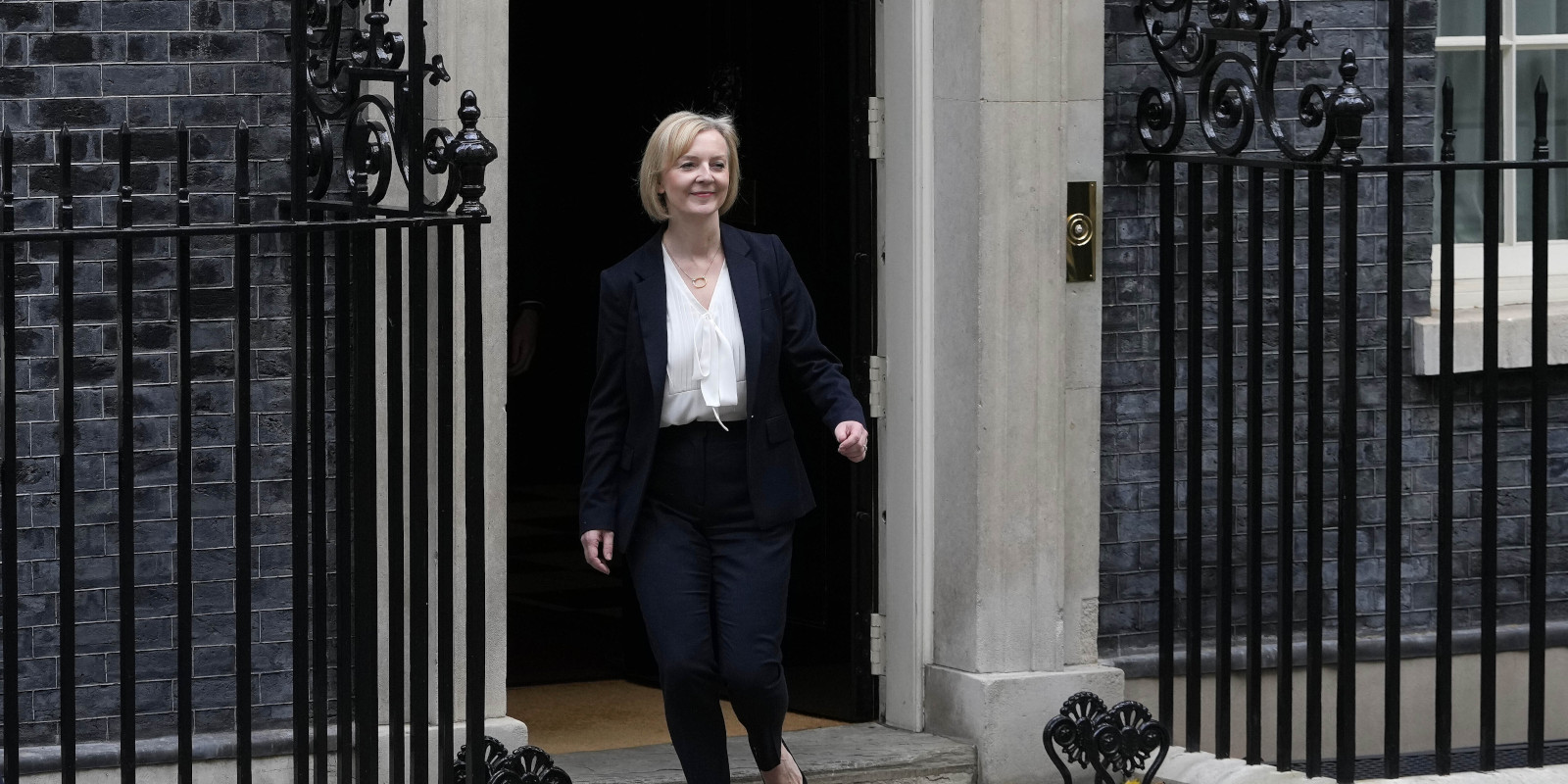On Thursday morning, U.K. Prime Minister Liz Truss took the short, familiar walk out of 10 Downing St. and delivered a minute-long speech announcing her resignation as leader of the U.K. Conservative Party and as prime minister of the country.
The announcement comes after weeks of turmoil in the markets provoked by a “mini-budget” introduced by the Truss government that featured a large, debt-financed tax cut designed to spur economic growth.
Her exit from the political scene, and the furious reaction to her economic ideas, could settle the ongoing argument about the post-Brexit direction of the U.K. Tories.
After the U.K. Tories swept to power in the last election with a centrist economic message under former leader Boris Johnson, the Truss government’s policies represented an entirely different wing of the party, said Eric Kaufmann, a Canadian political scientist who lives and works in the U.K, in an interview with The Hub.
“Such people, if they backed Brexit, did so either for career reasons or because they thought leaving the EU would open up a global panorama for a free-trading ‘Singapore-on-Thames’ unencumbered by EU regulation,” said Eric Kaufman.
“In reality, Truss governed as a libertarian, did nothing on populist issues, and even tried to increase immigration,” he said.
In her resignation speech, Truss doubled down on her belief that the country needed some kind of supply-side shock therapy to jump-start a stagnant economy.
“Our country has been held back for too long by low economic growth. I was elected by the Conservative Party with a mandate to change this,” said Truss.
“We set out a vision for a low-tax, high-growth economy that would take advantage of the freedoms of Brexit. I recognize though, given this situation, I cannot deliver on this mandate on which I was elected by the Conservative Party,” said Truss.
The U.K. Tories are facing a massive economic challenge while governing and an equally large identity crisis in the party, said Blair Gibbs, a Vancouver-based political consultant and former advisor to Boris Johnson.
“You have a very unstable organisation with roots that are not very deep anymore — and barely there at all in many of the seats it picked up at the last election. That challenge was underestimated by Truss, and this tired, grumpy and diverse coalition of interests required of her many leadership skills she did not possess,” said Gibbs.
Truss said she would carry on as prime minister until a new leader was selected, which she expects to happen by the end of next week. The details of how the new leader will be selected, and whether party members will get a say, are still being worked out, according to the Conservative Party.
“It feels like the party’s MPs are staggering towards one of three real choices: restoring Johnson in the hope of reviving the party’s wounded body for one last battle with Labour in 2024; choosing (former finance minister) Rishi Sunak in a coronation and hoping that he can stem the bleeding of votes to Labour and hold onto more 2019 seats; or to roll over and face a Canadian style electoral wipe out under anyone else,” said Gibbs.
Kaufmann said the new leader should listen carefully to the broader electorate and party members, rather than a caucus that may be out of touch with the political environment.
“Just seven percent of 2019 Tory voters want increased immigration, and the vast majority don’t want to shrink the state—both policies pursued by Truss,” said Kaufmann.
“A successor should lean into the realignment that has replaced economic issues with cultural cleavages. This means reducing immigration, addressing the rise of wokeism in institutions like schools or the National Health Service, levelling up the regions, and steering a centrist path on macroeconomics,” he said.
And, as pundits like Kaufmann advised the party to steer away from libertarian ideas, some libertarians were wondering if the downfall of Truss meant they had no home in the Tory party anymore.
“The U.K.’s actual community of classical liberals have their own questions to ponder: how well served are prospects for your ideas with the Tory party as their primary political vehicle?” wrote Ryan Bourne, who holds the R. Evan Scharf Chair for the Public Understanding of Economics at Cato Institute.
“Do MPs understand them and the priorities that animate? Is politics the correct strategy?” wrote Bourne.
Kaufmann said the fundamental problem is that the Tory realignment has changed the party’s voters, but not the MPs who represent them.
“Basically the Conservative MPs are far more economically right-wing and culturally left-wing than their voters, with members in between,” said Kaufmann.
“Unless the Conservative Party can reform its MP selection process and sideline the libertarians, it won’t be able to reconnect with the only people who will vote for it—namely culturally conservative voters, most of whom voted Brexit in 2016 and are extremely disillusioned with what’s on offer,” he said.
Recommended for You

‘Our role is to ask uncomfortable questions’: The Full Press on why transgender issues are the third rail of Canadian journalism

Need to Know: Mark Carney’s digital services tax disaster

Theo Argitis: Carney is dismantling Trudeau’s tax legacy. How will he pay for his plan?

Kirk LaPointe: B.C.’s ferry fiasco is a perfectly Canadian controversy



